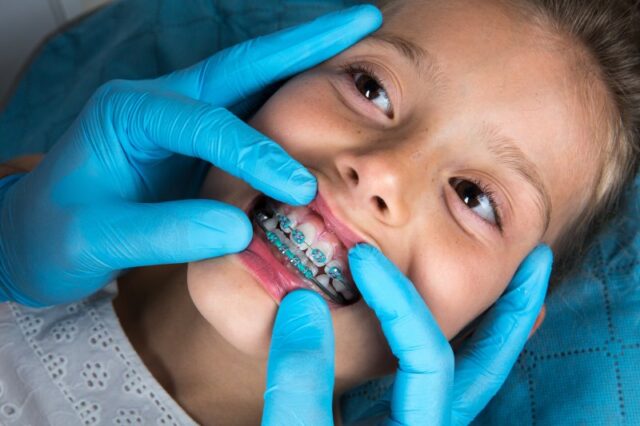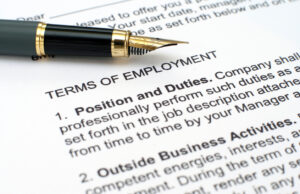
Braces are used for straightening teeth. They apply constant pressure on the teeth and gradually move them into the correct position. This form of orthodontic treatment is very tough and lengthy. It may take up to 18 months to 3 years from start to finish. Teenagers often get this treatment, though it can be a good option for some adults as well.
Just like any treatment, braces come with positives and negatives. One of the negatives is the frequent trips to the dentist to have the braces tightened. This procedure is done to keep the pressure on the teeth to shift them into the desired position. Let your dentist know about your case, for more details visit https://mavendental.com.au/dentists/maven-dental-newcastle/.
Orthodontic treatment with braces is undoubtedly the best option for severe dental misalignments. But it is also true that patients can experience side effects related to having their braces tightened. In this article, we cover those side effects in depth.
Again, tightening braces is necessary to achieve the desired position of teeth, but can lead to some undesired side effects. So let’s start our discussion of those side effects.
Page Contents
What are the side effects of Braces Tightening?

Braces tightening is a common process for patients undergoing orthodontic treatment. The patients must visit their dentist to tighten the wires every 4 to 6 weeks. The schedule may depend on the severity of the case. After tightening and adjusting the braces, the pressure on teeth increases. As a result, patients often fee pain and discomfort. But the good news is that the pain and discomfort generally goes away in just 1-2 days. Here are some things a patient may experience in the first couple of days after having their braces tightened.
Sore Teeth- The pressure applied on teeth due to a tightening of the wires can lead to soreness in teeth. After adjustment, almost everyone feels the pain and sore teeth for a few days.
Sore jaw- The tightening of wires and brackets not only affect the teeth but also the jaw. Patients feel soreness in the jaw because the tissues have to adjust with the movement of teeth.
Tender Gums- Patients may also experience soreness in the gums, especially as pressure is exerted on the teeth during the tightening process. This tenderness will generally go away after a few days.
Headaches- The pressure exerted on Jaws and teeth can lead to tension headache. Some patients experience temporary headache a day or two after having their braces tightened.
Difficulty eating – People face difficulties in eating food with the tightened braces. The pressure on teeth can create discomfort when a person tries to bite down or chew on their food. One way to reduce this kind of pain is to focus on eating soft foods in the initial days after having braces tightened.
Tightening braces is a common procedure that most patients know they’ll need to undergo at regular intervals from the time they begin treatment. The number of appointments depends on the dentist and the complexity of the problem.
In you are feeling anxious about these side effects, here are some tips than can help you manage through the pain and discomfort.
Learn More at Invisible Braces In India
5 Tips to decrease the discomfort after Braces Tightening

The pain and discomfort after braces tightening are not long-lived. Some people experience relief from side effects in just a few hours while some take a few days to return to normal. But there are some steps which you can take to cope with pain and other side effects.
- You can take pain killers, such as Tylenol or Advil, to relieve pain in your teeth and jaws.
- Oral anesthetics can be applied to the gums or teeth where you are feeling pain or soreness. Your orthodontist can likely provide you with a safe anesthetic that you can use when you are experiencing pain.
- Eat soft foods or take liquids to avoid discomfort during eating. You can make soup, yogurt, smoothies or shakes instead of eating solid or crunchy food items. Continue this routine for few days until the soreness in your teeth and jaws has gone away.
- Place a warm compress on your outer cheek for about 10-25 minutes to provide comfort and relive pain.
- Rinse your mouth with warm salt water to alleviate the pain after treatment.
How Long Does Tightening Discomfort Lasts?
The duration of discomfort or soreness after braces tightening can vary from person to person. Typically, the discomfort may last for a few days, ranging from 2 to 7 days. During this time, the teeth and surrounding tissues are adjusting to the new pressure and movement created by the tightened wires and brackets. It is common to experience the most discomfort within the first 24 to 48 hours after this Orthodontic treatment.
However, it’s important to note that everyone’s response to braces tightening is unique, and some individuals may experience discomfort for a shorter or longer period. Over-the-counter pain relievers, orthodontic wax, and following any specific instructions provided by your orthodontist can help manage the discomfort during this period. If the discomfort persists or becomes severe, it’s advisable to contact your orthodontist for further guidance
Conclusion
Tightening braces is a normal part of having braces, but comes with some difficulties after the procedure ends. Tenderness in the jaws, gums and teeth are common. Some patients experience headache. But the side effects can be managed if proper care is taken after the appointment. You can use pain killers and special gels to relieve pain. And those who face difficulties eating food can eat soft food items. It is obvious that the pressure on teeth will exert some effect on the whole mouth of the patient, but that doesn’t mean that the effects can’t be relieved.
Dentists can offer additional tips to counter these side effects. If you are unable to manage the discomfort after having your braces tightened, then contact your Orthodontist as it may be due to more pressure than expected on the teeth.
Finally, if the thought of having regular trips to the orthodontist to have your teeth tightened sounds unappealing, you should know that there are several alternative options, such as aligners and veneers. While braces are sometimes necessary for the most severe conditions, such as moderate to severe bite misalignments, these other options can often work just as well.































